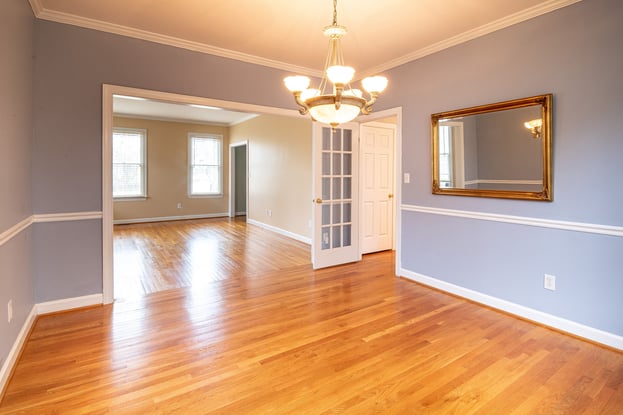It’s exciting to think about selling your house and moving into a new one! You’re ready to start the next chapter of your life. You declutter the house, have the carpets professionally cleaned, have the house inspected, get some staging advice, and you’re ready to list your home and bring in the buyers. Hold on. Is there anything wrong with your house? Would you like to reduce your legal liability when selling? One of the best ways to protect yourself, whether you're selling your home on your own or using a real estate agent, is to complete a seller’s disclosure form. Let’s look at why it’s so important.
When selling your home, you want to be honest about anything that’s wrong with it or you could be faced with a legal issue. If a buyer discovers an issue (ex. mold from water damage) that you didn’t disclose, it may result in the buyer rescinding their offer or asking for compensation to remedy the matter. The amount of information you need to disclose about your home varies by state. Some states require you to disclose information about the house and the land, if it’s part of the sale.
Your real estate agent will provide you with a seller’s disclosure form. In some states, your agent cannot fill out the form for you. If that’s that case, you may want to contact a real estate attorney for assistance. You want to make sure that you disclose known issues, as described below. If there's an issue listed on the disclosure form that you’re unsure about (ex. lead paint), write “I don’t know”.

1. What Comes With the Property?
When it comes to disclosing, think about what will be included with the sale of the property. Most buyers will want to know if the kitchen appliances or washer/dryer are included, so that’s always a good starting point. How about the custom draperies? Are the shelves in the garage included in the sale? What about the shed in the backyard? Whatever you plan on including with the sale of the home should be discussed with your agent and recorded on the agreement.
2. Property Defects
Are there structural issues or property defects you need to disclose to the buyer? These defects can include, but are not limited to, foundation issues, pest infestation, past insurance claims (ex. flood damage).
3. Hazardous Materials
Does your home contain hazardous materials like asbestos (pre 1970’s), contaminated ground water or mold?
4. Property Features
Are there property features that you need to disclose? Is there a well on the property? Septic or sewer? Is there a propane tank on the property to heat the home? Are you in a flood zone?
5. Noise Concerns
Are there any noise concerns on or near your property? Some examples include airplanes, barking dogs from next door, loud concerts at a local brewery 6 blocks away, etc. Be open with buyers about these noise issues so they can determine for themselves if they can live with them or not.
6. Death on the Property
Although disclosing a death on the property isn’t required by all states, if the death happened in the last 3 years it’s best to disclose it. If at any time while you’ve owned the home a violent death occurred, disclose it. If you don’t, the neighbors probably will eventually and it might come back to haunt you (pun intended).
7. HOA, Co-op, Historic District
If you live in a condo, townhouse, or other home that is part of a HOA, you’ll need to disclose this along with CC & R’s (covenants, conditions, and restrictions). If you live in a co-op or historic district, include this on the disclosure form as well.
8. Other Considerations
Are you the landlord, or did you receive the house in a trust but haven’t lived in the home? Is the house haunted? You’ll need to discuss these things with your agent or attorney to see if they should be disclosed.
Suspecting an issue without proof doesn’t mean you have to disclose it. For example, if you heard that the neighbor 3 doors down have a meth lab but you have no proof. You may not be required to disclose this, but it would be wise to discuss it with your real estate agent or an attorney.
Conclusion
When the time comes to sell your home, plan on disclosing as much as you can about the home and property. If you aren’t sure about whether you should disclose something, disclose it or talk to your real estate agent. Disclosing issues in the beginning could save you a lot of time and court expenses in the end. If you don’t disclose things, especially like a death, the neighbors probably will and you could be setting yourself up for legal issues. For more information, contact a real estate attorney or your real estate agent.














